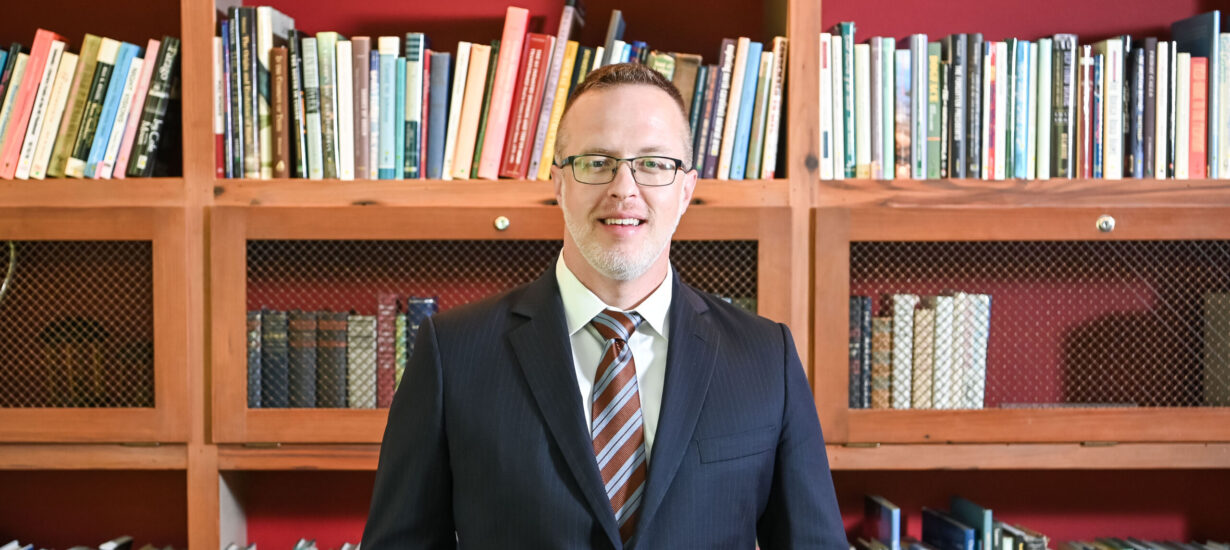Scott Anthony Quilty ’15 (MBA)

(Editor’s Note: The GAA’s Distinguished Young Alumni citations, such as this one, are read to the audience at the awards ceremony and then presented as a keepsake to the recipients.)
Accidents happen. And when they do — say, you’re in a group of young infantrymen who inadvertently start a fire with a smoke grenade — you’d want Scott Quilty on your team. A former Army Ranger buddy explains: “We’d throw Scott in front of fire whenever we made a mistake, because he could talk our instructors down. You just look at him and want to agree with him.” No wonder his comrades called him “the politician.”
Scott planned to make a career in the Army. He enlisted right out of high school, then received an ROTC Scholarship to the University of New Hampshire in his home state. He then returned to the Army as a commissioned officer and worked his way through the grueling process of becoming an elite Army Ranger.
Two years later, while leading his men on a night mission in Iraq, a bomb blast took his right arm and leg but left him his life — and an obligation to push forward on behalf of those who did not survive.
Drawn to the creativity of business, Scott enrolled in the Entrepreneurship Program at Kenan-Flagler Business School for his MBA. His Army career may have come to an abrupt end, but his service mindset did not. His ability to identify a threat quickly and figure out where to put resources to meet goals translated well to the business world. Ditto, finding solutions with the most impact in the shortest amount of time, moving good ideas into a static culture. Working collaboratively; building coalitions; taking on challenges fearlessly. Check. Check. Check.
His study partner at Kenan-Flagler was a physician, Dr. Abhi Mehrotra ’15 (MBA), who understood firsthand how technology had wedged itself between patients and doctors, who spend an inordinate amount of time completing electronic health records, having more eye contact with computer screens than with patients. The two came up with a low-tech solution: hire and train new college graduates aspiring to health-care careers to sit in on medical appointments, take digital notes and do the electronic paperwork. The scribes see the medical field from the inside and build relationships with professionals who can recommend them for graduate school.
Scott and Abhi planned MedScribes while at Kenan-Flagler. A few months after graduation, they had their first clients and had hired eight scribes. Four years later, they had more than 100 scribes, serving more than 200 physicians.
Then the pandemic hit and shut down in-person contact in all manner of businesses. Crises play to Scott’s strong suit. He takes the approach: How can we be better than before we hit this obstacle?
Scott and Abhi put MedScribes online, distributing laptops to scribes so they could connect with providers remotely around the clock. They sent a team to a call center at UNC and paired scribes and nurses for triage over the phone, the scribes providing information about testing and reassuring callers whose symptoms weren’t in line with COVID-19. Scott showed the resilience that had borne him through other make-or-break times.
In Fuquay-Varina, where he and his wife, Dora, and their son and daughter live, Scott saw other independent businesses struggling. He’d been through the chamber of commerce’s leadership program to learn more about his town. Working with the chamber and the downtown association to establish an angel fund, he began cold-calling. Within a few days, he’d raised $121,000 to give out in $3,000 grants to brick-and-mortar businesses. He’d launched a startup — raised money, reviewed grant applications, wrote checks — with a planned lifespan of only 14 days, start to finish. When other towns called to replicate what he’d done, he shared all the materials on the fund’s Facebook page.
Scott enrolled his son in the Cub Scout pack that met at the local American Legion Hall. (His daughter joined, too, once the Scouts opened membership to girls.) He volunteered as scoutmaster and joined the Legion’s executive committee. Most of the Legionnaires were at high risk for COVID-19 and stayed homebound. Scott organized a weekly canteen, buying groceries in bulk that about 100 Legionnaires would purchase and pick up curbside every Wednesday afternoon.
All of these ventures, Scott says, draw on the skills he learned at Kenan-Flagler on how to start a venture, connect to customers and develop a business model he has used over and over. The only change is the problem he’s solving at the time.
Scott periodically returns to Kenan-Flagler as a guest lecturer in entrepreneurship classes. He mentors fellow veterans through that disconcerting realization that life may not be turning out the way they thought it would when they were 18. He looks to the future and sees opportunities. You just look at him and want to agree with him.
